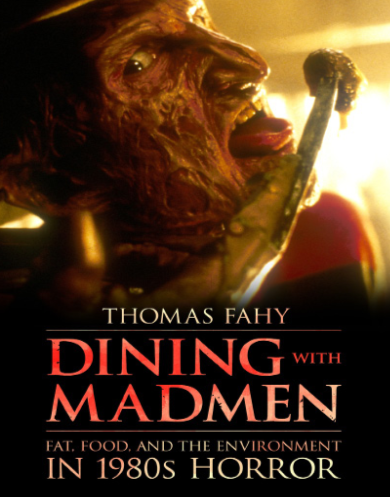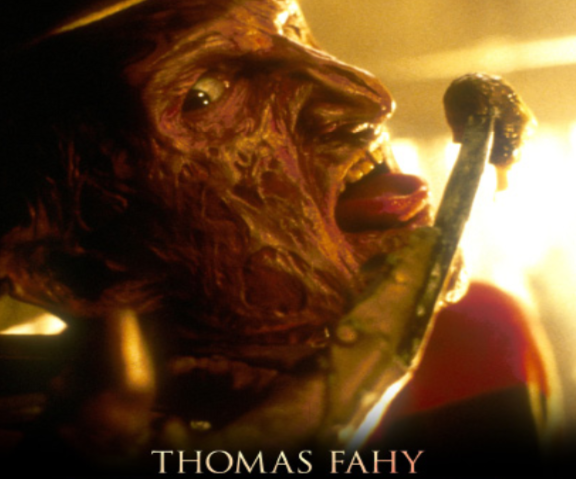Professor Publishes Book on Food and Environmental Anxieties in 1980s Horror
By Anand Venigalla
Features Editor
Thomas Fahy, associate professor of English, recently published a book with the University Press of Mississippi called “Dining with Madmen: Fat, Food, and the Environment.” The book is dedicated to exploring America’s preoccupation with body weight, processed food, and the transformation of the body and environment through the lens of horror fiction and film.

According to the book description, “[Horror fiction’s] presentation of American appetites resonated powerfully for audiences preoccupied with body size, food choices, and pollution” in order to demand “a recognition of the potentially horrifying impact of consumerism on nature, society, and the self.”
An increasing concern in the 1980s was “about how much money people were spending on fast foods, and how much fast food was being eaten,” Fahy said. The anxiety arose “not just that we’re eating these things but that we’re eating and consuming in large quantities food that was designed scientifically to be addictive.”
Vampire fiction and film plays into this concern. “Vampirism is consistently used as a metaphor for addiction,” Fahy said. “Vampires can’t go without having their daily fix for blood.” In many fictional portrayals, characters are depicted indulging in fast foods, sweets, and processed food. “These films are pointing out the addictive quality of these foods and inviting us to think about the addictions we have and what kind of transformation they are causing in our bodies.”
Fahy’s book does not focus extensively on popular 1980s staples such as Freddie Kruger, Jason Voorhees, and Michael Myers. “The 1980s has gotten a little lost [in serious analysis] because it’s perceived as all surrounding these type of iconic bad guys,” Fahy said.
Fahy cited the importance of Thomas Harris’s novel “The Silence of the Lambs,” published in 1988, in its dealing with anxieties about the body. Also covered in Fahy’s study are Bret Easton Ellis’s novel “American Psycho,” Stephen King’s “Thinner,” and Katherine Dunn’s “Geek Love.”
Fahy published a collection of writings in 2010 called “The Philosophy of Horror,” which looked at the horror genre from a philosophical standpoint. In 2015, he published “The Walking Dead: Talking Terror with TV’s Top Horror Writers,” a collection of original interviews with writers for television shows such as “The Walking Dead,” “Buffy the Vampire Slayer,” “The X-Files,” and “American Horror Story.”
Fahy wrote many novels, including “The Unspoken” and “Sleepless,” which were published in 2008 and 2009. Then he decided to do a full scholarly study of horror. “It seemed like the next thing I should be doing. When I thought back on the 1980s, I realized there was a lot to say and a lot to explore, and it was an exciting period to go back to and use that genre as a lens for understanding it.”
Fahy considers the horror fiction and films of the 1980s to be deeply relevant to contemporary concerns. “Zombie fiction in the 1980s tends to address apocalyptic concerns about destroying the planet, or science run amok,” he said. Work like this raises questions about what we are doing about these problems individually, socially, and culturally.
“The genre is a way to heighten our sense of emergency, letting us see an apocalyptic vision of our own making, and challenging us not to stand on the sidelines anymore.”
Fahy teaches ENG 2-014, ENG 2-018 – Writing II: Research and Argumentation and ENG 193: Writing Young Adult Fiction this semester. His book is available on Amazon.com.



Be First to Comment